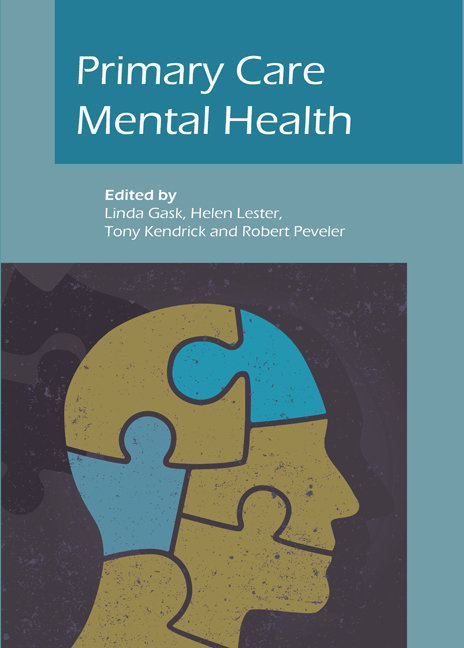Book contents
- Frontmatter
- Contents
- List of figures, tables and boxes
- List of contributors
- Preface
- Part I Conceptual basis and overarching themes
- Part II Clinical issues
- Part III Policy and practice
- 24 Mental health promotion
- 25 Improving the quality of primary care mental health: what does and does not work?
- 26 Psychological treatments
- 27 Collaborative care and stepped care: innovations for common mental disorders
- 28 The role of practice nurses
- Part IV Reflective practice
- Epilogue
27 - Collaborative care and stepped care: innovations for common mental disorders
from Part III - Policy and practice
- Frontmatter
- Contents
- List of figures, tables and boxes
- List of contributors
- Preface
- Part I Conceptual basis and overarching themes
- Part II Clinical issues
- Part III Policy and practice
- 24 Mental health promotion
- 25 Improving the quality of primary care mental health: what does and does not work?
- 26 Psychological treatments
- 27 Collaborative care and stepped care: innovations for common mental disorders
- 28 The role of practice nurses
- Part IV Reflective practice
- Epilogue
Summary
Competing demands in the management of common mental health problems
The individual and public health burden of mental ill health is dominated by ‘common mental health problems’ such as depression and anxiety. Prevalence estimates from around the globe suggest that around 16% of the adult population experience depression and anxiety in any one year, with common or ‘high prevalence’ mental health problems constituting 97% of the total population prevalence (Singleton et al, 2001; Andrews & Tolkein II Team, 2006). These problems cause such significant disability (World Health Organization, 2001) that in Australia it is estimated that at least 50% of days lost to disability through all types of mental illness are caused by the experience of depression or anxiety (Andrews et al, 2001). Many patients do not present for help; of those who do, as many as 50% will report purely physical symptoms and not be recognised as suffering from anxiety and depression. Even so, somewhere between 1% and 3.5% of the adult population are likely to be diagnosed with a common mental health problem annually (National Institute for Health and Clinical Excellence, 2004a,b, 2005).
In the UK, the prevalence of these problems and the lack of effective services to deal with them have been blamed for a multi-billion pound cross-subsidy from the welfare budget. It has been estimated that the UK spends £7–£10 billion per year on benefit payments to support people with anxiety and depression through the payment of incapacity benefit to the long-term sick (Centre for Economic Performance, 2006). With more people on incapacity benefits owing to mental illness than unemployment benefit, mental health problems were cited as ‘the biggest causes of misery’ in Britain (Centre for Economic Performance, 2006).
Ameliorating the burden of common mental health problems presents a major challenge for primary care. The challenge is particularly significant because primary care services are expected to meet a number of goals:
• Access. Service provision should meet the need for services in the community. The right to obtain treatment should depend on need for services, not ability to pay or geographic location.
• Effectiveness. Mental health services should do what they are intended to do: improve health. Health may be defined in terms of health status, or broader definitions may involve wider function and quality of life.
- Type
- Chapter
- Information
- Primary Care Mental Health , pp. 395 - 408Publisher: Royal College of PsychiatristsFirst published in: 2017



